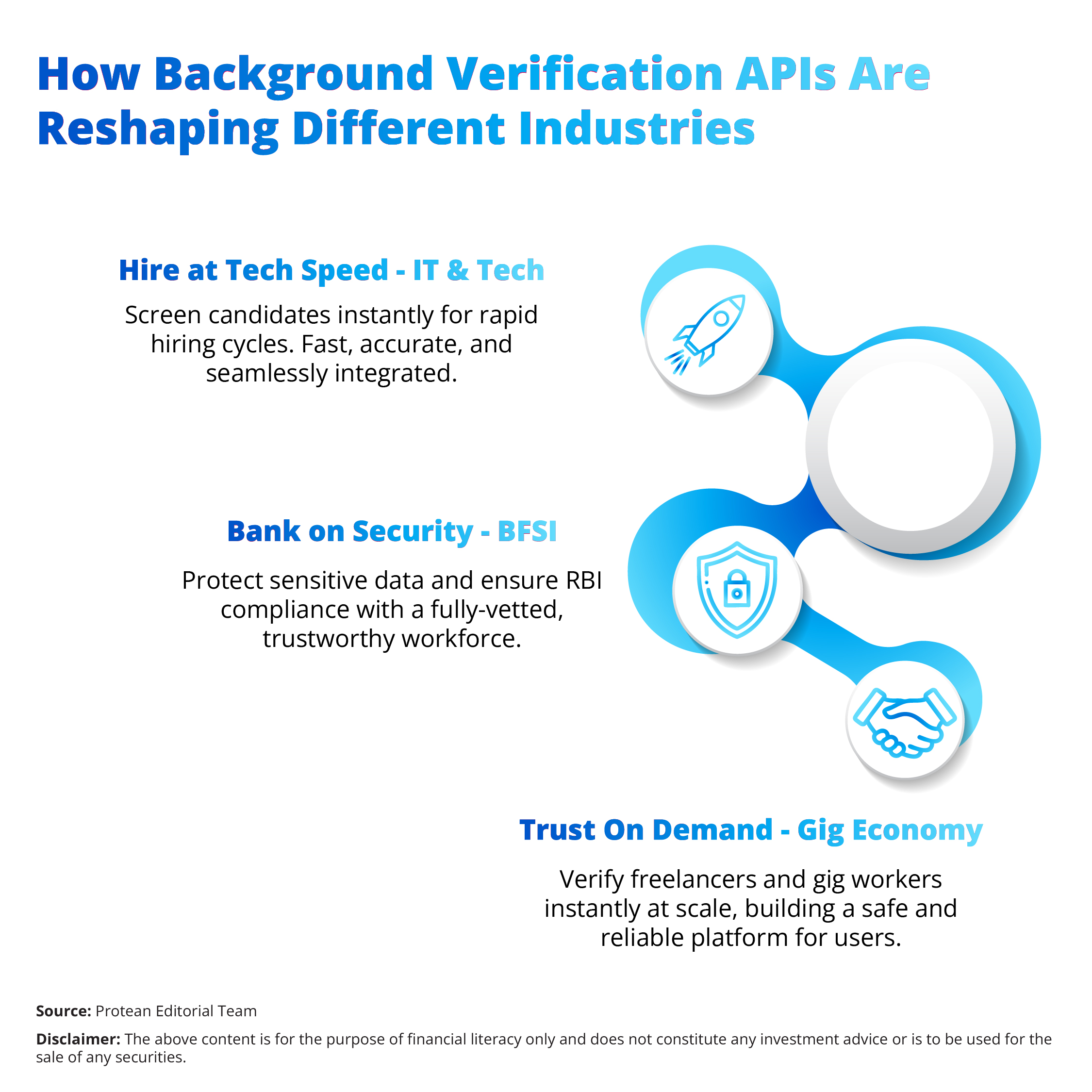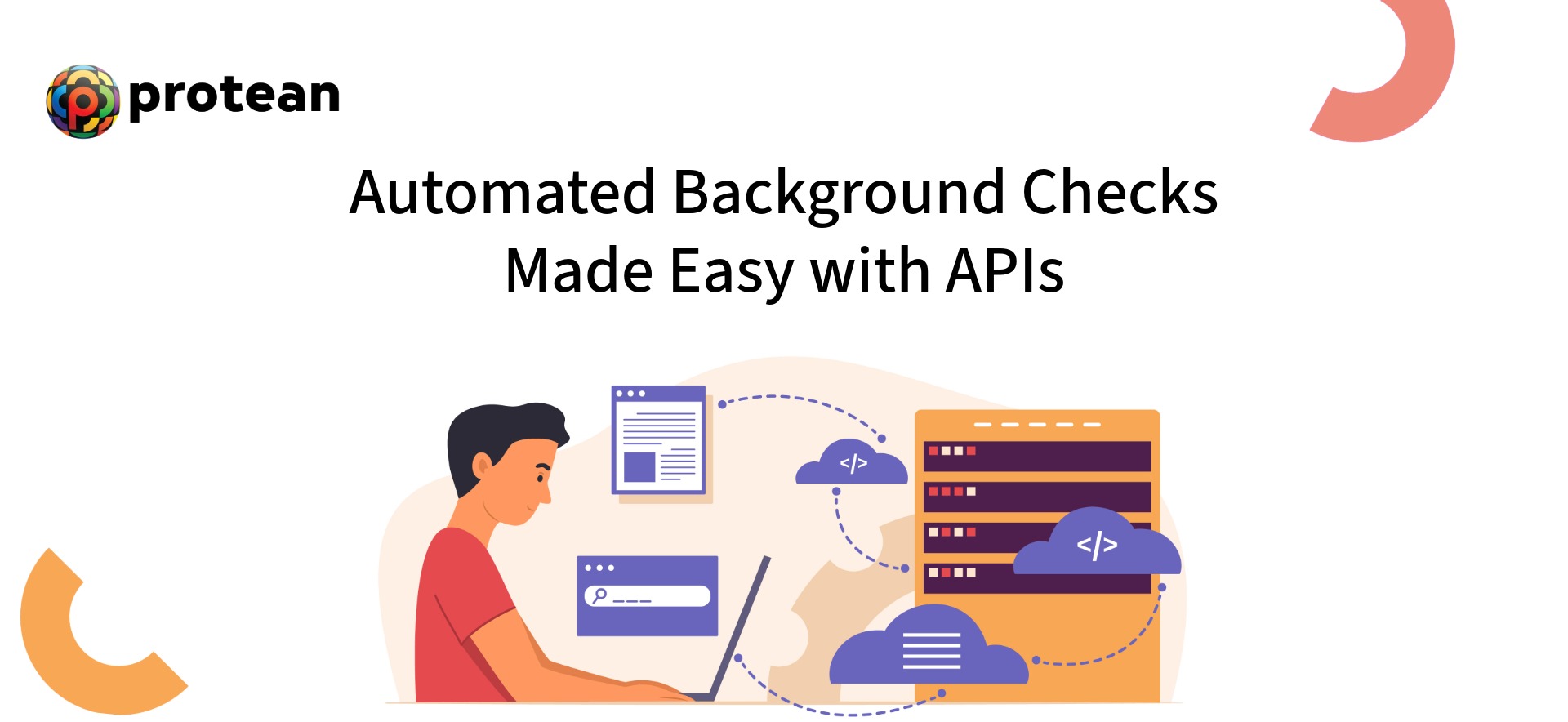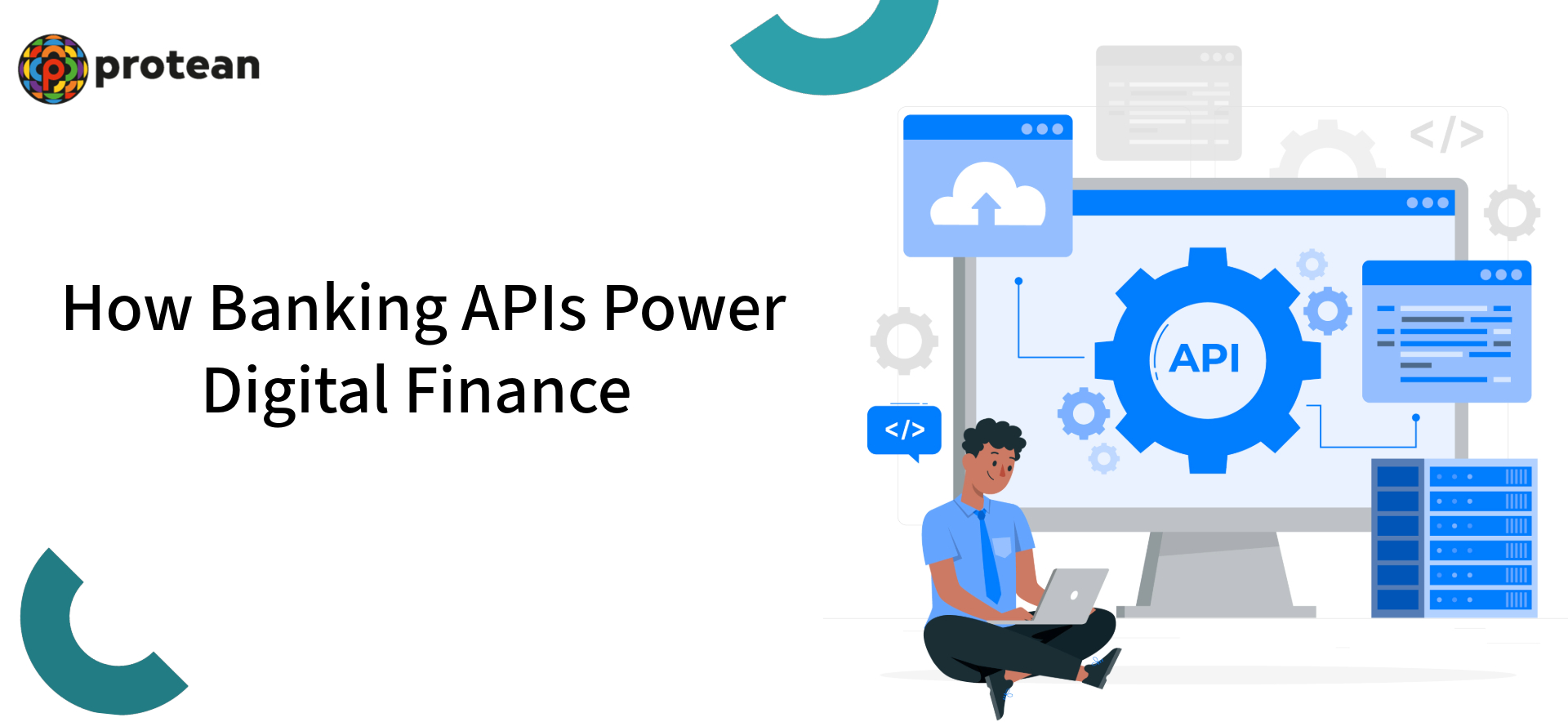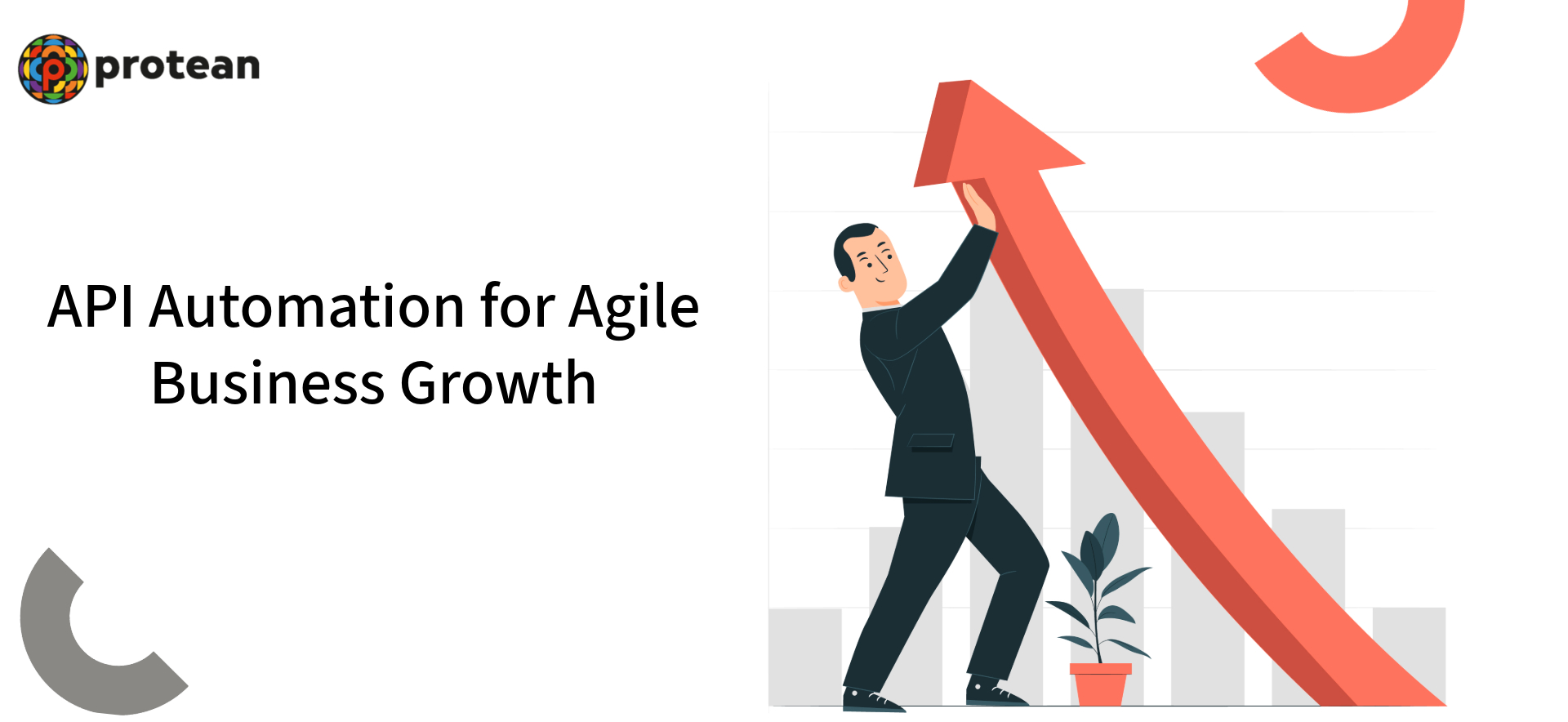Blogs
How API Integration Enables Streamlined Background Verification
Are you looking for background verification APIs? You might find numerous APIs and API integration technology details on the internet.
Today, background verification is considered as a cornerstone of effective talent acquisition. However, traditional background verification processes are often dominated by:
- Manual techniques
- Time-consuming process
- Room for errors
These inefficiencies might lead to delayed onboarding, frustrate candidates, and increase operational costs.
The integration of Application Programming Interfaces (APIs) can offer a transformative solution.
API integration can enhance efficiency, accuracy, and compliance. Let us explore how API-led background verification is revolutionising hiring processes, with insights drawn from recent industry developments.
What is API Integration in Background Verification?
APIs are a set of rules and tools.
APIs can allow different software systems to communicate and share data seamlessly.
In the context of background verification, API integration can connect background check platforms with employer systems, such as:
- Human Resource Management Systems (HRMS)
- Applicant Tracking Systems (ATS).
This connection can enable the automatic exchange of data, eliminating manual data entry and reducing delays.
For example, APIs can pull real-time information from databases like criminal records, educational institutions, or government registries, delivering results instantly.
Companies like Protean eGov, known for their expertise in e-governance and data management, leverage APIs to provide secure and efficient identity verification services. This automation can ensure end-to-end streamlining, from initiating checks to delivering results, transforming the hiring process.
Why Streamlined Background Verification is Essential
Streamlined background verification is important in today’s fast-paced hiring environment. Traditional methods, reliant on manual processes, often take days or weeks, delaying onboarding and impacting business operations.
API-driven verification significantly reduces turnaround time by automating data retrieval and validation. This efficiency improves the candidate experience, as job seekers expect quick and transparent hiring processes. Moreover, streamlined systems enhance compliance by ensuring checks align with national and local regulations, reducing the risk of legal penalties.
APIs also minimise data errors by eliminating manual input, ensuring accurate verification of criminal records, employment history, and identity details. For instance, Expertise of Protean eGov in tax-related infrastructure and identity services highlights the importance of reliable data in compliance-driven sectors. Businesses can hire confidently while maintaining trust and efficiency by adopting streamlined technologies.
Main Benefits of Background Verification API Integration
API-driven background verification can offer numerous advantages that can transform the onboarding process across myriad sectors such as finance, healthcare among others.
Below are the major benefits of API integration:
Speed and Efficiency
APIs automate multiple verification checks simultaneously, such as criminal records, address validation, and education credentials. This parallel processing reduces verification timelines from days to hours or even minutes. For example, a single API request can fetch real-time data from multiple sources, enabling employers for identity verifications.
Scalability
API integration allows businesses to scale their background verification processes effortlessly. Whether screening a handful of candidates or thousands, APIs handle high volumes without compromising speed or accuracy. This is particularly valuable for industries with frequent hiring, such as the gig economy or IT.
Accuracy and Reduced Errors
Manual data entry often leads to inconsistencies, such as typos or mismatched records. APIs eliminate human intervention by directly pulling verified data from authoritative sources. This ensures higher accuracy in results, reducing the risk of hiring unqualified or risky candidates.
Compliance Assurance
Compliance with regulations, such as data privacy laws and industry-specific mandates, is critical. APIs integrate with systems that stay updated with evolving regulations, ensuring checks remain compliant. For example, Protean’s API solutions for identity verification align with Reserve Bank of India (RBI) regulations, ensuring secure and compliant data handling.
Real-Time Updates
APIs provide real-time status updates through integrated dashboards, allowing HR teams to monitor verification progress instantly. This transparency improves decision-making and enhances communication with candidates, fostering a positive onboarding experience.
These benefits collectively enable businesses to streamline operations, reduce costs, and maintain a competitive edge in talent acquisition.
Recent advancements highlight how companies like Protean eGov Technologies are expanding their API-driven services to include new segments like SaaS-based offerings, further emphasising the scalability and efficiency of such solutions.
Industries Benefiting from Background Verification APIs

Several industries are reaping the rewards of background verification API integration. Let us look at them in detail:
IT and Tech
In the tech sector, rapid hiring cycles require solutions that enable fast yet reliable onboarding. API-based background verification allows companies to screen candidates efficiently without compromising on accuracy.
Banking, Financial Services, and Insurance (BFSI)
The BFSI sector requires a highly secure and verified workforce due to its handling of sensitive financial data. APIs facilitate thorough checks, such as identity verification and credit history, ensuring compliance with RBI regulations. Protean’s account aggregation services, regulated by the RBI, exemplify how APIs enhance security and efficiency in this sector.
Gig Economy
The gig economy, including platforms for freelancers and on-demand workers, relies on quick and scalable background checks. APIs enable rapid screening of large candidate pools, verifying identities and work histories in real time. This can ensure that platforms maintain trust and safety without slowing down operations.
These industries demonstrate how API integration can cater to diverse organisational needs with growing adoption of digital solutions in sectors like BFSI and e-governance.
Conclusion
API integration is revolutionising background verification by making it faster, more secure, and highly scalable.
APIs can reduce manual effort, minimise errors, and ensure compliance with regulatory standards.
Industries like IT, BFSI, and the gig economy are leveraging these solutions to streamline hiring and enhance candidate experiences.
Protean eGov Technologies is leading the way, expanding their API-driven services to meet evolving market demands, as reported by Business Standard. Businesses that adopt API-powered background verification can optimise their hiring processes, reduce operational costs, and stay competitive in a digital-first world.






